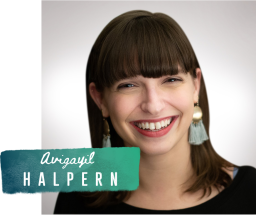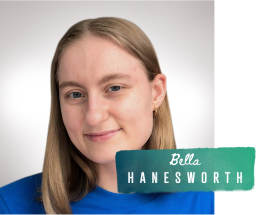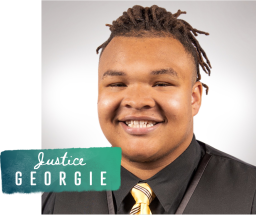In times of struggle, people often turn to faith to give them grounding – and hope. America’s students, battling the effects of the pandemic, endeavoring to complete their academics and searching for employment opportunities, are no exception. In the next installment of “Generation Resilient,” CNN Opinion asked five students to share the role that religion is playing in their lives right now. The views expressed in this commentary are their own.
College freshman Shemar Powell: Searching for God on Zoom

My freshman year at Morehouse College was supposed to be a major turning point – both academically and personally. No longer in Baltimore, I was trying to start over in a new city and at a new school. By attending a historically Black college, I thought I would finally have a chance to thrive in an environment that encouraged and respected young Black men.
So, I was upset when coronavirus forced the college to shut down. It meant that I would be returning to Baltimore to complete my second semester online. It also meant that I would have to find a new part-time job, since I could no longer work at the restaurant in Atlanta where I had been employed. My only option was at a local Amazon warehouse, where I was put on the overnight shift.
I took it, but then began the daunting task of balancing my schoolwork during the daytime and my Amazon work at night. So, how did I find that balance?
By returning to the basics, meaning my Christian faith. Even though the pandemic had challenged my faith in God – how could a righteous and just God allow for so much pain and suffering – I still believed it would be critical to weathering this extraordinarily challenging time. Fortunately, my church – Healthy Choice Ministries – is still active on Zoom. Bishop Aubrey A. Harley hosts virtual bible study sessions on Wednesday, religious services on Saturday and corporate prayer, when the church comes together to pray for a common goal, on Sunday.
While it’s hard to put into words just why those Zoom church sessions mean so much to me, the best I can do is give you an analogy. Imagine you are a small child with an ear infection. As you struggle against the pain, you feel the world is coming to an end. But then your mother approaches you, comforts you and takes you to the doctor where you get the treatment you need to heal. Church is my healing mother – more so than my school or job or any other mainstay in my life right now.
I continue to battle exhaustion and depression, but I am grateful to have some sort of religious grounding as our country battles yet a second pandemic: racism. As ordinary – and perhaps extraordinary – people protest and question systems of government that have repeatedly let down folks like me, I recognize the role that my faith is playing in keeping me from losing all sense of hope.
As my bishop explained, “This isn’t a new struggle. We know this, and God knows this. We must put it all in his hands, while remembering that we are his children and we must act as such.” In other words, failure is not an option – we must continue to push forward, just as our ancestors did, and with God as our moral guide.
As America reopens, and as its people call out for racial justice, it is imperative we all do our part to create a new vision for the country – ideally one more equal, inclusive and kind toward all of its citizens.
Shemar Powell is a freshman at Morehouse college, where he is majoring in marketing and minoring in psychology.
First-year rabbinical student Avigayil Halpern: Judaism kept me from losing focus

As a person who observes Jewish law, one of the primary contributions my religious practice makes to my life is that it tells me what I should do – and when I should do it. In quarantine, this has meant that my days are not a formless mass of hours, but instead punctuated by thrice-daily prayer times. I know when the week begins and ends because I observe Shabbat, marking the creation of the world by abstaining from creative labor.
But far more important than structuring my time, Judaism has kept me focused on my obligations.
I am currently studying for my first major rabbinical exam, which I will take in August. Over the past few months, I have found it hard to focus on my studies. Staring at my study partner via Zoom does not compare to analyzing texts together in person, sitting in a room alive with the sounds of other voices studying aloud.
On top of that, the needs of the world have so often felt overwhelming: I’ve been unable to focus because of stress and fear, forcing me to leave material over for another day when I can rein in my anxieties. But this new reality has also pushed me to expand what my practice of Torah study, or the study of Jewish sacred texts, can encompass.
Torah study during this pandemic is not just the moments when I sit pouring over an ancient or medieval book. Rabbi Yitzchok Hutner, a 20th-century Jewish thinker, teaches that the commandment of Torah study includes things one would never imagine fall into that category: all of the care work that enables someone to study Torah, and all of the care work that Torah, properly understood, pushes one to do for herself and others. Just as I’m devoting my time to textual study, I’m devoting my time to care work: from phone calls with friends who are struggling to cooking food for my family and myself.
My religious obligations lie not only in offering care to my loved ones, but in the profound act of care that is committing myself – and my community – to pursuing justice. In this moment, where it is acutely evident that racism is a public health crisis happening alongside, and exacerbated by, a pandemic, Judaism is pushing me to redistribute money to organizations supporting Black life and, in particular, Black trans people. It is pushing me to work within my community to advocate for concrete anti-racist commitments from the Jewish organizations and leaders that are important in my own life.
But my religion has done even more for me than helping me focus on my obligations. It has been a guide for what larger priorities I should orient myself toward in all moments of my life, and it has given me a path for how I can contribute to building a world less ravaged by the injustices that make life so unstable for so many.
Avigayil Halpern is a first-year rabbinical student at Yeshivat Hadar in New York. Follow her on Twitter at @avigayiln.
College sophomore Bella Hanesworth: Awakening my ‘Buddha nature’

When the pandemic began, my school – Mercy College – quickly transitioned to virtual classes. The sudden shift in learning was anything but smooth, and I struggled to stay focused on my coursework.
Fortunately, though, I was able to find an anchor in my Buddhist faith. As a practitioner of Nichiren Buddhism and a member of the Soka Gakkai International (SGI), I embraced the virtual platform that my Buddhist meetings were taking – and in them, I found the strength to press on.
This practice teaches that each person possesses the potential to overcome all obstacles. We refer to this potential as our “Buddha nature” – a state of life filled with limitless courage, wisdom and compassion. By chanting the phrase “Nam-myoho-renge-kyo,” we help to awaken our Buddha nature. And so, I resolved to chant daily for the knowledge to navigate through this crisis.
I didn’t just rely on chanting. I turned to my fellow SGI members, who showed unwavering compassion and belief in my ability to weather the worst storm. They encouraged me to consistently reach out to my friends, family and other members. In doing so, I could strengthen them – and perhaps even myself. In other words, we could help each other, offering kind words and support as needed.
After my semester ended, I felt relief and immense appreciation. I had made it through the worst of the pandemic – and my friends and family were healthy and safe. But then yet another Black man, George Floyd, was killed – and the racist systems embedded in our society were exposed.
The goal of SGI is to achieve “kosen-rufu” – a state in which society functions based on respect for people’s lives. As Buddhists, it’s our mission to uproot the causes of systemic racism and transform our current reality. And still, I often feel small and powerless in the face of such large-scale and institutionalized problems.
My mentor, Soka Gakkai President Daisaku Ikeda, says, “When the realists tell us to accept a world of suffering, a world of war and injustice, what they are really doing is displaying the stagnation and failure of their own imagination… It is the power of imagination, the power to imagine different realities, that frees us from the mistaken notion that what exists now is all that will ever exist.”
When I pause to really consider the meaning of his words, I feel hopeful again. Buddhist philosophy gives me the tools to continuously challenge my biases, engage in constructive dialogue and fight for justice. And after months of a pandemic – and time for intense introspection – I feel more committed to that fight than ever before.
Bella Hanesworth is a sophomore year at Mercy College, where she is majoring in biology.
College freshman Justice Georgie: Never underestimate the power of prayer

When the pandemic struck, I was completing my second semester at Baltimore Community College – working on getting the necessary credits to begin at Morgan State University. I had found a solid group of friends and was actively pursuing my passion of video production and digital storytelling.
But Covid-19 had other plans for me.
With my campus closing down, I moved home to my mother’s one-bedroom apartment, giving up the cozy dorm room I had called my own, and began the unenjoyable task of virtual learning. The transition was not the smoothest – and with my mother, a hairdresser, temporarily out of work – it was a stressful beginning to a new chapter of my life.
Fortunately, I had someone who I could consistently turn to for love and guidance – God. Raised as a Christian in an all-denomination church, I was taught that no matter where we come from, everyone can pray and praise God together. Every Sunday growing up, I went to Genesis Thru Revelations Deliverance Church. There I found the tools, and the support system, needed to control my fears and anxieties. I also found a community of fellow worshippers who encouraged me to be a better version of myself.
Now, in the midst of a pandemic and protests against racial injustice, my belief in God and my church’s ingenuity have helped me channel my fears into something more productive. Though it cannot hold in-person services yet, my church hosts Sunday morning service online. My pastor frequently reminds us that prayer is one of our most powerful weapons – and when we join in prayer with others, we form an impenetrable spiritual wall against the many threats lurking around us.
As Proverbs 3:5-6 states, “Trust in the Lord with all your heart, and lean not on your own understanding. In all your ways acknowledge him, and he will make straight your paths.” As the virus – and police brutality – continue to impact my community and my country, I will continue to turn to my source of light and life – the Holy One, blessed be his name. Only he can truly make me believe that this, too, shall pass.
Justice Georgie is a freshman at Baltimore City Community College.
High school junior Yasmin Errazi: Islam taught me to take nothing for granted
Between going on college tours, studying for the SATs and practicing for a learner’s permit, junior year of high school is already overwhelming. But throw a pandemic and a country’s reckoning with its centuries of racism into the mix, and it can seem like an exercise in futility.
Fortunately, I have been able to turn to my religion – Islam – to keep me calm and even optimistic about the future. This year, as Covid-19 gripped the country, I paused to celebrate Ramadan, a one-month holiday devoted to daily prayer, fasting and charity.
Though I was juggling virtual learning and intense academic demands, fasting and praying each day from late-April to late-May gave me a surprising amount of strength and even gratitude for all that I’ve been given – including a loving family and community, which came together, in a socially distanced way, to celebrate the holiday.
Every day at sunset, when my family would break fast, I was reminded of the many Americans who struggle to put food on the table – and the many more who would experience food insecurity in light of rising unemployment. But in this struggle, I also saw an opportunity to give more zakat, or charity, which is one of the five pillars of Islam. Charity can take many forms – not just monetary donations. During this period, I’ve donated my time to raising awareness around issues of poverty and social injustice.
Though my mosque was closed at the height of the pandemic, it, too, still managed to prioritize charity. It organized a food bank to assist Muslims in the community and hired volunteers to deliver everything from fresh fruits and vegetables to baby diapers. While I wasn’t able to volunteer due to looming school deadlines, I was inspired by the kindness of my community and took the spare moments I could find to immerse myself further in the teachings of Islam – reading the Quran and praying more regularly.
One teaching that stood out to me was the Prophet Mohammed’s emphasis on maintaining strong family ties. Without my family and their constant support through these challenging times, I would likely have struggled to maintain any semblance of optimism or normalcy. Learning that Islam encouraged – if not demanded – I invest more time in my family made me feel even more at peace during these chaotic times.
Though the pandemic appears far from over, I am grateful that I’ve been able to use this time to reflect on my faith, my purpose and my many blessings. And I am especially thankful I have a religion that has taught me the value of never taking anyone – or anything – for granted.
Yasmin Errazi is a high school junior at Justice High School in Falls Church, Virginia.


